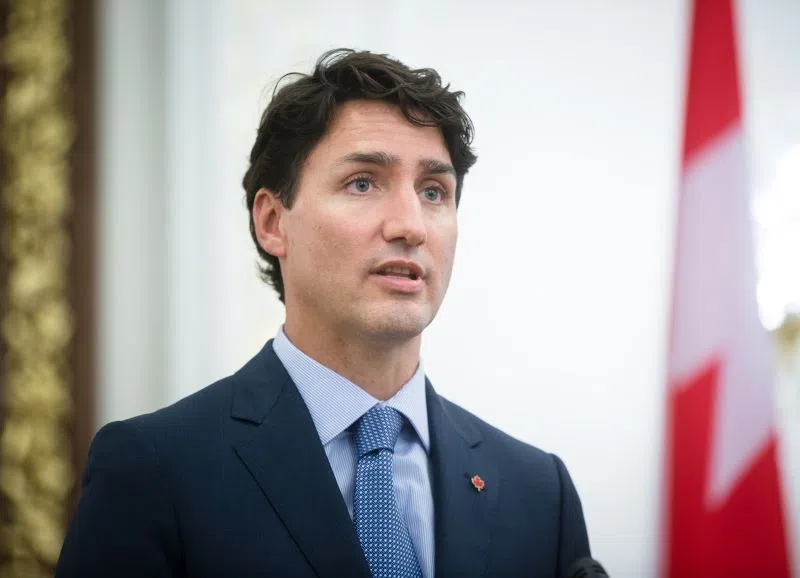Justin Trudeau says he plans to step down as Canada’s prime minister and leader of the Liberal party.
Trudeau made the announcement on Monday, saying he will stay on until a replacement is chosen, while also asking the governor general to prorogue the Parliament until March 24.
“Despite best efforts to work through it, Parliament has been paralyzed for months after what has been the longest session of a minority parliament in Canadian history,” Trudeau said, speaking in front of his residence in Ottawa.
“That’s why this morning I advised the governor general that we need a new session of Parliament. She has granted this request and the House will now be prorogued until March 24.”
Trudeau also added that over the holidays, he had a chance to reflect over his own political future and has decided to step aside to make way for a new leader.
“I intend to resign as party leader, as prime minister, after the party selects its next leader through a robust nationwide competitive process,” Trudeau said.
“Last night, I asked the president of the Liberal Party to begin that process. This country deserves a real choice in the next election, and it has become clear to me that if I’m having to fight internal battles, I cannot be the best option in that election.”
Trudeau’s announcement came amid growing calls from within the Liberal caucus for Trudeau to resign as the party’s popularity in public opinion polls continues to plunge.
During the winter break, the Ontario, Atlantic and Quebec caucuses all concluded that Trudeau needed to step aside, saying it was time for a new leader to lead the Liberals into the next federal election.
Multiple high-profile cabinet ministers have resigned in recent weeks, including the shocking exit last month of Chrystia Freeland as deputy prime minister and finance minister.
Freeland, who until recently was a longtime staunch ally of Trudeau, publicly blamed the prime minister for her decision to resign, which she announced hours before she was set to announce the government’s fall economic update. Her resignation letter stated she was “at odds” with Trudeau over recent economic policy decisions.
It marks a stunning turnaround for Trudeau after months of defiance in the face of mounting opposition from MPs within and outside his party and among voters.
Over the past few months, the Liberals saw the end of its supply-and-confidence agreement with the NDP and lost the backing of the Bloc Quebecois, which had helped the government survive multiple non-confidence motions but failed to advance its own policy priorities.
NDP Leader Jagmeet Singh said after Freeland’s resignation that his party would no longer keep the government afloat, and vowed his own non-confidence motion after the House of Commons returns on Jan. 27.
The Conservatives, which is currently enjoying support from close to half of Canadian voters in the polls, has also promised to bring the government down at the earliest opportunity after failing several attempts last year.
Trudeau was once seen as the saviour of the Liberal Party, which rallied around him to win a majority government in the 2015 election following its crushing defeat and fall to third place behind the NDP four years earlier.
But an Ipsos poll for Global News released Dec. 20 suggests Trudeau’s popularity has since plummeted to 23 per cent – just one point ahead of the record-low support for former Liberal leader Michael Ignatieff during the 2011 election.
The poll also found that a majority of Canadians, 53 per cent, now want to see an early election this year.
A federal election must be held no later than October 2025 under Canadian law.
(Article courtesy of Saba Aziz, Sean Boynton & Uday Rana Global News)










